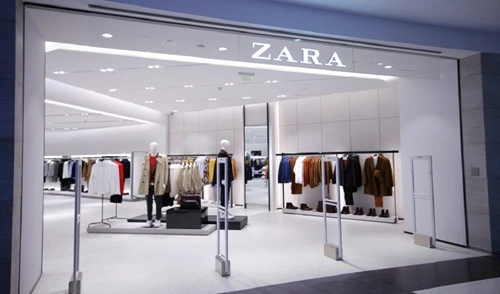India’s fashion retail market is booming, fueled by rising disposable incomes, urbanization, and a growing population of fashion-conscious consumers. Among the international fashion brands making a significant impact in the Indian market is Zara, a global leader in fast fashion. Known for its trendy apparel, footwear, and accessories, Zara offers high-quality fashion products at premium prices, appealing to India’s aspirational middle and upper-middle-class consumers.
For entrepreneurs seeking to invest in the fashion retail sector, a Zara franchise in India presents an attractive opportunity. However, Zara follows a unique business model globally, and understanding the Zara franchise cost in India, along with other key aspects like eligibility, profitability, and the application process, is crucial. This article provides a comprehensive guide to help aspiring franchisees explore this lucrative opportunity.
Why Zara is Popular in India
Zara, owned by Inditex, the world’s largest fashion retailer, entered the Indian market in 2010 through a joint venture with Tata Group’s Trent Limited, forming Inditex Trent Retail India Private Limited. Since then, Zara has expanded its presence in major metropolitan cities like Mumbai, Delhi, Bangalore, and Hyderabad.
Here’s why Zara continues to be a favorite among Indian consumers:
- Fast Fashion Model: Zara is renowned for its ability to deliver the latest fashion trends from the runway to stores within a matter of weeks, making it highly appealing to trend-conscious consumers.
- Premium Brand Image: Zara has positioned itself as a premium fast-fashion brand, offering high-quality apparel and accessories that resonate with India’s aspirational shoppers.
- Minimal Advertising Strategy: Zara relies on strategic store locations and word-of-mouth marketing rather than heavy advertising, enhancing its exclusivity.
- Sustainable Fashion Initiatives: Zara’s focus on sustainability and eco-friendly fashion appeals to India’s environmentally conscious consumers.
Does Zara Offer Franchises in India?
While Zara is an attractive brand for investors, Zara does not offer direct franchise opportunities in India. The brand operates exclusively through its joint venture with Tata’s Trent Limited. This means all Zara stores in India are company-owned and company-operated (COCO), ensuring complete control over operations, branding, and customer experience.
Globally, Inditex follows a similar strategy, preferring joint ventures or wholly-owned subsidiaries in key markets to maintain quality and brand positioning. In select countries where franchising is offered, it is typically available only to large retail groups with extensive experience in fashion retail.
Why Zara Prefers the Company-Owned Model in India
Zara’s decision to operate through a joint venture rather than franchising in India stems from several strategic reasons:
- Brand Consistency: Complete control over store operations ensures that Zara’s global brand image, customer service standards, and product quality are maintained across all locations.
- Premium Store Locations: Zara strategically selects prime retail locations in high-end malls and shopping districts to enhance its brand perception, which requires substantial investment.
- Operational Efficiency: Centralized operations allow Zara to manage supply chains, product assortments, and pricing strategies efficiently.
- Long-Term Growth Strategy: By controlling its operations, Zara can pursue a long-term growth strategy focused on sustainable expansion and profitability.
Estimated Cost of Owning a Zara Franchise in India (If Available)

While Zara does not currently offer direct franchising in India, we can estimate the potential investment based on industry standards and Zara’s global business model. If Zara were to open up franchising opportunities, the initial investment would likely range between ₹5 crore to ₹10 crore, depending on factors such as location, store size, and city tier.
Estimated Investment Breakdown:
Franchise Fee:
- The one-time franchise fee would likely be in the range of ₹50 lakh to ₹1 crore, granting franchisees the right to operate under the Zara brand.
Store Setup and Interiors:
- Zara stores are known for their premium interiors, minimalistic designs, and high-end furnishings.
- Setting up a Zara store could cost between ₹3 crore to ₹5 crore, including construction, fixtures, and branding.
Inventory and Stocking:
- Zara follows a fast-fashion model that requires regular inventory updates.
- The initial inventory procurement would require ₹1 crore to ₹2 crore, depending on store size.
Working Capital:
- To cover operational expenses like staff salaries, utilities, and marketing, an additional ₹50 lakh to ₹1 crore would be needed.
Royalty Fees:
- In markets where Zara offers franchising, the royalty fee typically ranges from 5% to 10% of gross sales, covering brand support and operational assistance.
Profitability and Return on Investment (ROI)
Zara’s premium brand positioning and fast-fashion model make it a highly profitable retail business. If franchising were available in India, the profitability indicators would likely look as follows:
Annual Revenue:
- A well-located Zara outlet could generate ₹10 crore to ₹20 crore annually, depending on the location and customer base.
Net Profit Margins:
- Profit margins typically range from 15% to 20%, depending on operational efficiency and sales performance.
Break-even Period:
- The average break-even period would be 3 to 5 years, depending on store performance and market conditions.
Alternative Ways to Partner with Zara in India
Although direct franchising opportunities are not currently available, there are alternative ways to collaborate with Zara or Inditex in India:
Real Estate Partnerships:
- Investors or property developers with premium retail spaces can lease them to Zara for new store openings. Zara prefers locations in high-end malls and prime retail streets.
Supply Chain Collaborations:
- Entrepreneurs can explore opportunities in logistics, warehousing, and supply chain management, supporting Inditex’s operations in India.
Strategic Partnerships with Tata Group:
- Since Zara operates through a joint venture with Trent Limited, collaborating with other Tata retail brands like Westside or Zudio may offer similar exposure to the fashion retail segment.
Challenges of Operating a Zara Franchise (If Available)
While Zara presents a lucrative business opportunity, potential franchisees should be aware of certain challenges:
High Initial Investment:
- Zara’s premium brand positioning requires substantial capital for store design, inventory management, and marketing.
Operational Expertise:
- Running a fast-fashion retail outlet demands expertise in inventory turnover management, supply chain logistics, and fashion merchandising.
Competitive Market:
- The Indian fashion retail market is highly competitive, with brands like H&M, Uniqlo, Mango, and domestic players vying for market share.
Adherence to Global Standards:
- Franchisees would need to comply with Zara’s stringent global standards for store operations, customer service, and sustainability practices.
Conclusion
While the prospect of owning a Zara franchise in India is undoubtedly appealing, it is essential to understand that Zara currently does not offer franchise opportunities in India. The brand operates exclusively through its joint venture with Tata’s Trent Limited, ensuring complete control over its operations, brand image, and customer experience.
However, if Zara were to introduce franchising in India, the Zara franchise cost would likely range from ₹5 crore to ₹10 crore, with attractive profitability potential due to its premium positioning and loyal customer base. For entrepreneurs eager to invest in the premium fashion retail segment, alternative partnerships through real estate collaborations or Tata’s other retail ventures can provide similar business exposure.
Zara’s continued success in India’s competitive fashion market reflects the brand’s strong appeal among Indian consumers. For those with the financial resources, strategic mindset, and operational expertise, partnering with a brand like Zara—should the opportunity arise—could pave the way for long-term profitability and business success in India’s thriving retail sector.

Shashi Kant is the Founder and Editor of BusinessScroller.com, a leading platform for business insights, finance trends, and industry analysis. With a passion for journalism and expertise in business reporting, he curates well-researched content on market strategies, startups, and corporate success stories. His vision is to provide valuable information that empowers entrepreneurs and professionals. Under his leadership, BusinessScroller.com has grown into a trusted source for in-depth articles, customer care guides, and financial expertise.



Subject: Request for Franchise
Dear :- ZARA ,
It gives me great pleasure to write to you that I am interested in acquiring a franchise of your All CATEGORY] business in RAJKOT. I have performed an initial research of your business and find that the same match my areas of expertise and finance. Please see attached my detailed profile which will give you ample background on my business abilities, strengths, skill-set, and overall vision. I assure you that I would be utilizing my extensive knowledge and business experience to operate your franchise effectively and successfully.
I feel that a face to face meeting or a telephone conversation could be a good start to take this matter further. I request you to kindly go through my profile and let me know if you have any questions. I will be more than happy if you could send me details about your franchise and its applicable terms and conditions.
Looking forward to your early response.
Sincerely,
[KANAIYA PANSURIYA]
Please contact through the official website of Zara as its just a online platform where we have shared the estimated cost of Zara Franchise.